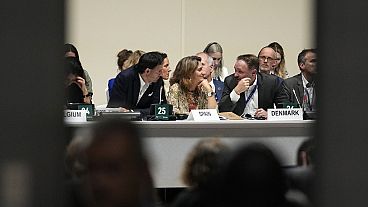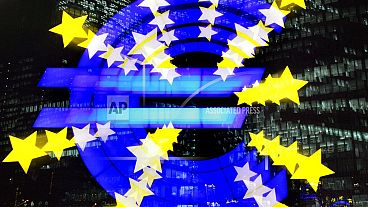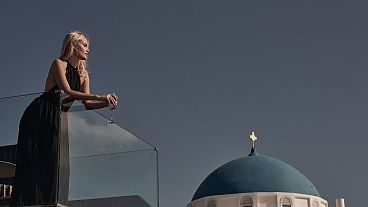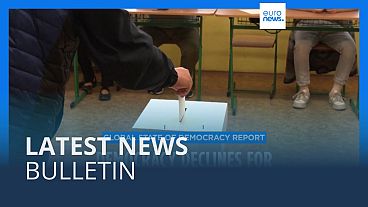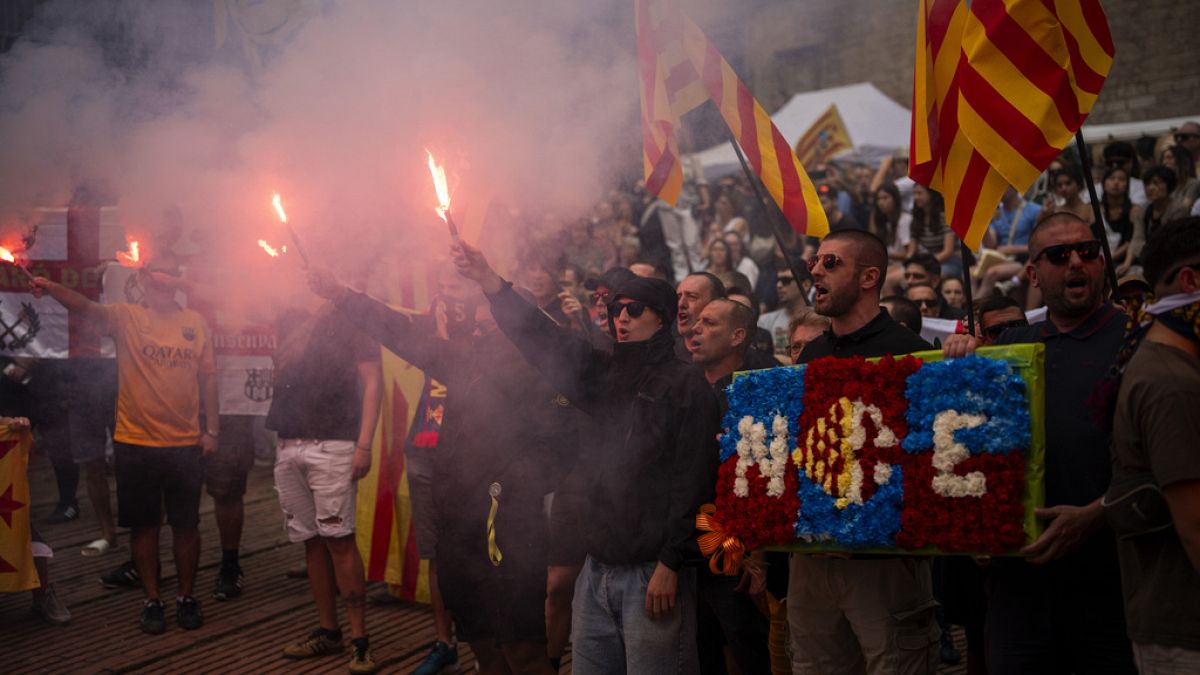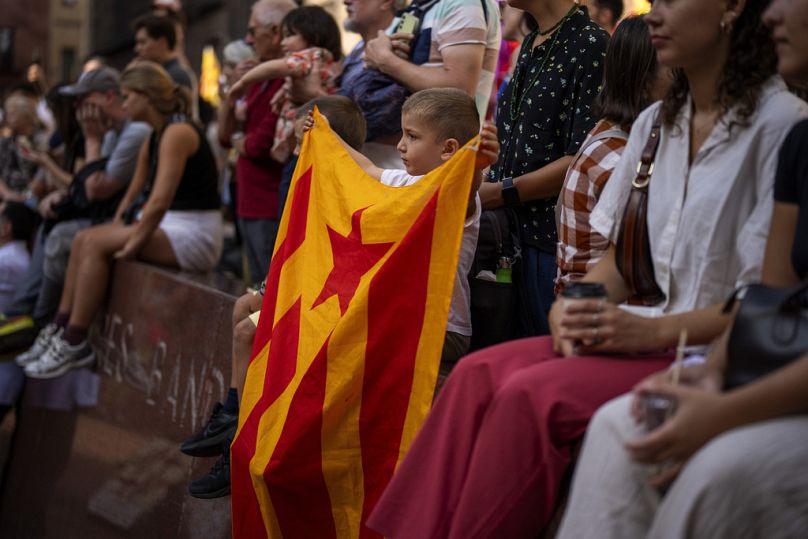The rally took place on Catalan national day, under the motto "Let's return to the street."
Around 60,000 people gathered in Barcelona to march in support of Catalan independence, according to the Guardia Urbana, the city's municipal police force, the lowest number since 2012.
The holiday marks the fall of Barcelona in the Spanish War of Succession in 1714 and has become the date for huge rallies by the region’s secessionist movement.
But this year's march drew half of the 115,000 people who took part in Barcelona last year. And it was a far cry from the 1.8 million people who took part in the Diada in 2014 amid an atmosphere of unity.
The Catalan National Assembly (ANC) and other pro-independence organisations divided the demonstrations across five Catalan cities, including Girona, Tarragona, Lleida and Tortosa, bringing together 73,500 people and reducing the number of people in the Catalan capital.
Organisers have blamed the reduced turnout on electoral disputes amongst political parties causing low points for the independence movement, according to Spanish press.
Carrying flags or placards, Catalan secession supporters met in a large public square, after coming from all parts of the wealthy northeastern region.
Under the slogan "decent housing, independence," the organisers called for unity among the pro-independence parties.
The rally started at the Estación de Francia and ended at the Arc de Triomf where ANC president Lluís Llach and other leaders of the independence movement spoke to the crowds.
In the morning, the traditional offering to the monument of Rafael Casanova, leader of Barcelona's resistance to the Bourbon siege during the War of Succession, was also more discreet than usual. 100 people attended - one of the lowest turnouts in recent years.
During speeches at the monument, the Government emphasised moving forward "through dialogue between different people."
Girona's PSC (Socialists' Party of Catalonia) spokesperson, Sílvia Paneque, said that Catalonia is “a place of hope, future and opportunities”, where “everyone, from their ideas, projects and aspirations” must work to not miss “any opportunity” for progress.
There was no mention of the application of the amnesty law for Catalonia's separatists or the implementation of the unique financing system for the region.
The rally comes just weeks before a verdict will be given on whether or not to apply a controversial amnesty law to the 12 Catalan separatist movement leaders.
Spain’s parliament voted in May to give final approval to an amnesty law for hundreds of Catalan separatists involved in the illegal and unsuccessful 2017 secession bid.
On Tuesday, Spain’s Supreme Court ruled that the amnesty would not apply to Catalan separatist leader Carles Puigdemont, citing an exemption for embezzlement of public funds.
Puigdemont, who made a brief visit to Barcelona on 8 August, has since returned to Waterloo near Brussels, where he went into self-exile after the events of 2017.
He had returned on the day that the Catalan parliament was voting on Socialist Salvador Illa becoming regional president.
Illa from Prime Minister Pedro Sanchez's Socialists (PSC) is Catalonia's first head of state not from the pro-independence movement since 2010.

